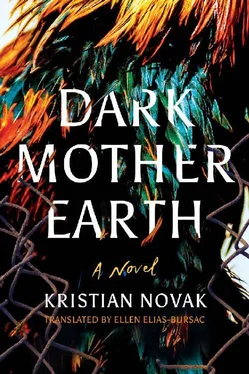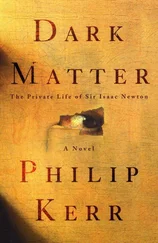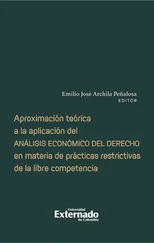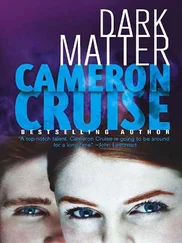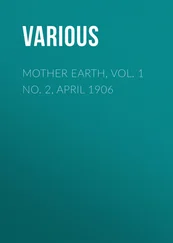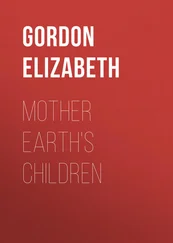Others were a little more serious, saying they were happy to rub Serbs’ noses in the fact that we were Catholics.
“Damn-blasted Serbs.”
“They’re shooting at police.”
“And putting up barricades.”
“Enough already with the bad-mouthing.”
Even the kids in school began talking about Serbs, Croatia, democracy, and especially Franjo Tuđman. There was a sternness about him. He spoke with his sizable mouth practically shut, his upper lip would twist, and when he talked about how we had to love Croatia, he lost control of his voice and he’d do this yodelly thing. He wore big square glasses with thick frames and had wavy hair. His hair first swelled up, then flattened down, then swelled up again. I wanted to love him, but I just couldn’t. He didn’t have a dog to protect him from a bomb, like Tito’d had, and he hadn’t sent the Germans packing, either. And besides, I was worried he might do something buffle-brained. All those democracy honchos looked like they had no idea what it was they were supposed to be doing. The Special Police officer reporting to the president on TV fumbled halfway through and forgot what he was supposed to say. When Tuđman went to the United States, the president there didn’t receive him. We saw on TV that they stayed at an ordinary hotel and took taxis, like tourists in suits, and the passersby stared at them like they were nutcases. We missed out on the pomp and circumstance, the red carpet and brass band, and all the soldiers wearing white gloves. I was afraid nobody would want to recognize us and take us seriously. That would be bad, because we’d begun taking ourselves very seriously indeed.
The new story had appeal. I was happy to believe we were descendants of the Tomislav royal line, a much different and finer people than the uncouth Bosnians or Serbs. Closer to the Germans and Americans than to the Russians and Turks or any other such sorry folks. A brave and noble people.
I wanted us to eat sandwiches on triangular slices of bread like in the US of A, and have a hundred different kinds of salami and chocolate like in Bad Radkersburg, and drink Coca-Cola from a can. I wanted to wear Bermuda shorts, bright-colored T-shirts, and white high-tops like the kids in California wore. I was sick and tired of stories about the partisans, wartime couriers, bombers, clowns, and persnickety girls; about how the Adriatic Sea connected us to the whole world; and about how Tito was kind to children and loved to hunt. I wanted to be the BMX Bandit and Karate Kid. I began to imagine being capable of great things, and that when I did something in front of everybody, they would all leap spontaneously to their feet and applaud, first slowly, then louder like they do in the American movies, when an old veteran stands up from his wheelchair and salutes with a tear in his eye. I believed this was possible, that people in the village would change, and that I wouldn’t always be met with discouragements like “All right already,” “No, no, no,” or “Come now, come now, come now.”
“All right already” is what people said when somebody who’d been taking dancing lessons came to a wedding and danced differently than the other folks who’d been stitching a two-step across the floor. Somebody would say, “All right already,” and everybody would know that what came next was “Cut the crap.” When somebody on Vujčovo Hill knew how to ski proper-like and started zigzagging left and right instead of going down straight like everybody else, somebody would mutter, “All right already”… and everybody knew that next came “Knock it off . ” It was the same when somebody said, “Come now, come now, come now”… They all knew that next was “Get over it.”
It had been over two years since I’d gone to the forest and nearly died of exposure. And for half a year after that, I went once a week to talk to the lady at the Čakovec medical center, and told her stories about my good friends, about how we had camaraderie and played with Legos. There wasn’t actually much of that. Mom once told me to invite kids over to have soda, sandwiches, and cake for my birthday, but nobody would come, and once she was supposed to take Granny for a checkup in Čakovec, but she didn’t have anybody to leave me with because none of the parents wanted me around. I had to lie to the lady at the medical center so she wouldn’t send me to the big woman and little man with the dumb questions. I drew pictures for her: people, animals, dogs, trees, tanks and planes, imaginary beings, the earth and the sky. She didn’t know I was drawing the sites of my hidden remorse because I couldn’t make the world better for me and others.
I left some drawings and messages on Dad’s grave, though I wasn’t sure he really read them. Somebody was probably taking them. I corresponded with my buddies from the hospital for a bit. Eventually I stopped writing Viktor and Sandi because I got bored. But Biljana stopped writing me. She didn’t usually write much about her sickness, but she said once that they were moving her to Zagreb and that she’d ridden in an ambulance. She wrote me about the pony they’d promised her when she got better and the pop band Novi fosili. She included stickers of singers and actors, the kind that came with chewing gum. I stuck them on one side of my bed to remind me of her. I prayed to God she stopped writing to me because she got bored and not for some other reason.
The children in my class hadn’t forgotten what I’d tried to do to Dejan Kunčec; word got out about it, maybe he told them himself. I’d have given my eyeteeth to be like the others, but I knew even then that I’d lost that chance a long time ago. On the other hand, I was unappealing enough that they left me alone. I sat by myself. At least that’s how it looked to everybody else. Bacawk and Chickichee were still around, lurking in my peripheral vision. I was strong enough by then to ignore them, and I’d become good at that. Now and then, at lunch break, one or the other would dart out from under the table and wing a gob of phlegm into my soup or spit into my mashed potatoes. I went right on eating just to spite them, though this did turn my stomach. Sometimes they watched me through the window at night, but I was no longer afraid.
And besides, things weren’t like they used to be at home. When summer came there was no trip to the seashore. We ate the same food for days: dishes made from offal and buckwheat groats. The water pump kept breaking, and the roof leaked during summer downpours. This at least gave me some amusement, scampering around the attic with pails and bowls, thinking about how I could become a consultant for households with leaky roofs. The only truly upsetting part was having to wear a Yassa tracksuit with foot straps, which I was ashamed of. I wanted one of those bright-colored tracksuits that made a slithery sound, like the other kids wore. Mom was looking for a job, but all she could get was part-time work on the weekends. She’d help out in the kitchen and as a waitress for weddings at the Međimurska hiža, and sometimes bring home leftovers.
My uncle and his wife still helped us out, but less and less. He was worried he’d lose his job in Slovenia, so he was saving for a tractor. One day he brought me a blue soccer jersey and cleats and told me a junior soccer league, the Pioneers, would be starting at the Miners Croatian Soccer Club. I was excited, but anxious because he said each boy would be asked to show what he could do with a soccer ball. I didn’t have one. I felt a little better when Franjo, my only friend, said that he was going to try out for soccer, too. He was in fourth grade and lived a few houses down from me toward the Mura.
The very fact that his parents had named him Franjo suggested they didn’t care much for him. It was the kind of name that made you think of granddads, and his last name was Klanz. So of course everybody called him Franz Klanz. His parents were pretty old and drank a lot, which I knew because they didn’t mow their grass often. I also knew they were poor, because they had a black-and-white TV set with no remote, and for Christmas they just had a scrawny little tree on the table with colored bulbs that blinked nervously, and—this was the biggest giveaway—they used a wooden outhouse behind their house. The outhouse must’ve clogged up for a while, so they did their business outside, in the garden and the bushes. They had a dog they tied to a scraggly tree on such a short leash that it could hardly move. Its head would poke out from one side of the tree, its rump from the other. Sometimes it had to sleep half standing and half lying in its own shit because it had no way to kick dirt over it. Every time Franz’s dad walked by the dog, he’d deliver a kick to its muzzle. The dog was overjoyed when someone tossed it a scrap of something from the kitchen window, along with cusses and reminders that it was a mongrel and ought to be grateful to be getting anything at all and they were so kind. Franz’s mom always smelled of wine and onions, and talked like she was sleepy. In the morning she’d go to the store and come back with only bottles. Once, around nine at night, she came over to our house, and I heard her say that guests had stopped by, and she was wondering if, by any chance, she could borrow a bottle of wine or something a bit stronger. She took pains to be polite, talked loud and fast, and laughed at herself for not having wine to serve her guests. Mom gave her a bottle, and after she left, we watched her through the window. There was nobody at their house as far as we could tell. Mom told me she was a drunk, and I shouldn’t be like that. I asked her how much a person has to drink to become a drunk, but she couldn’t say. I reminded her that during the grape harvest everybody said they’d have a little to “make them abler” or to “give them cunning.” Then she said drunks are people who can’t stop drinking. I thought that could never happen to me because my cousin and I took Uncle’s beer to Granny’s bedroom and tried it one Christmas, and it was disgusting. It burned in my mouth, nose, and throat, and I couldn’t imagine why anybody would want to drink it, no matter how cunning or able they’d be.
Читать дальше
